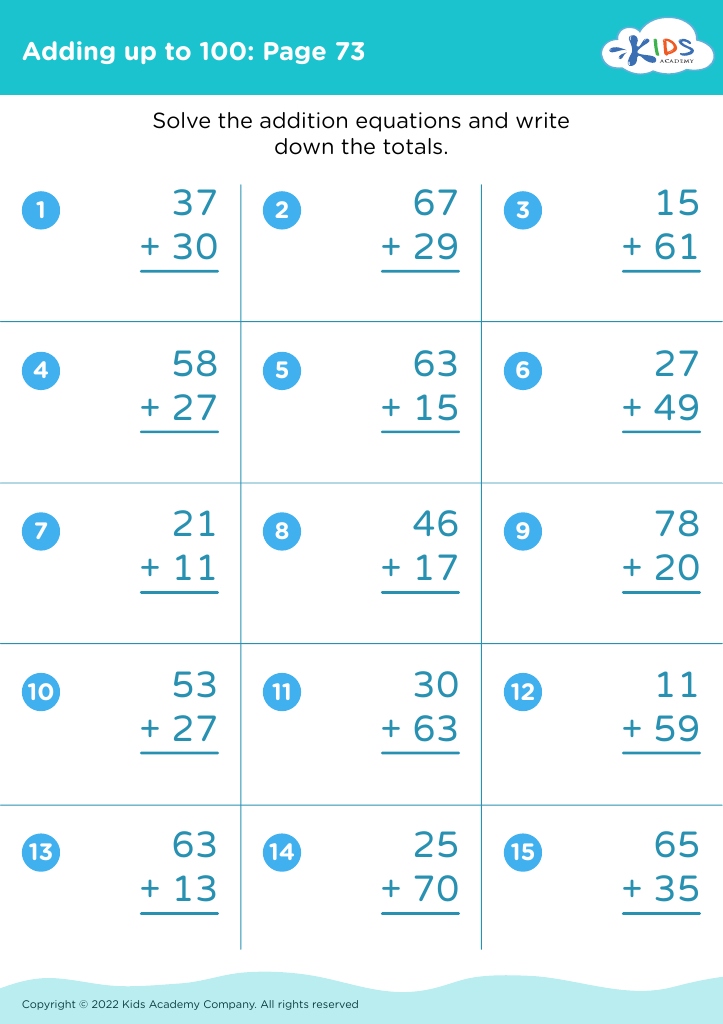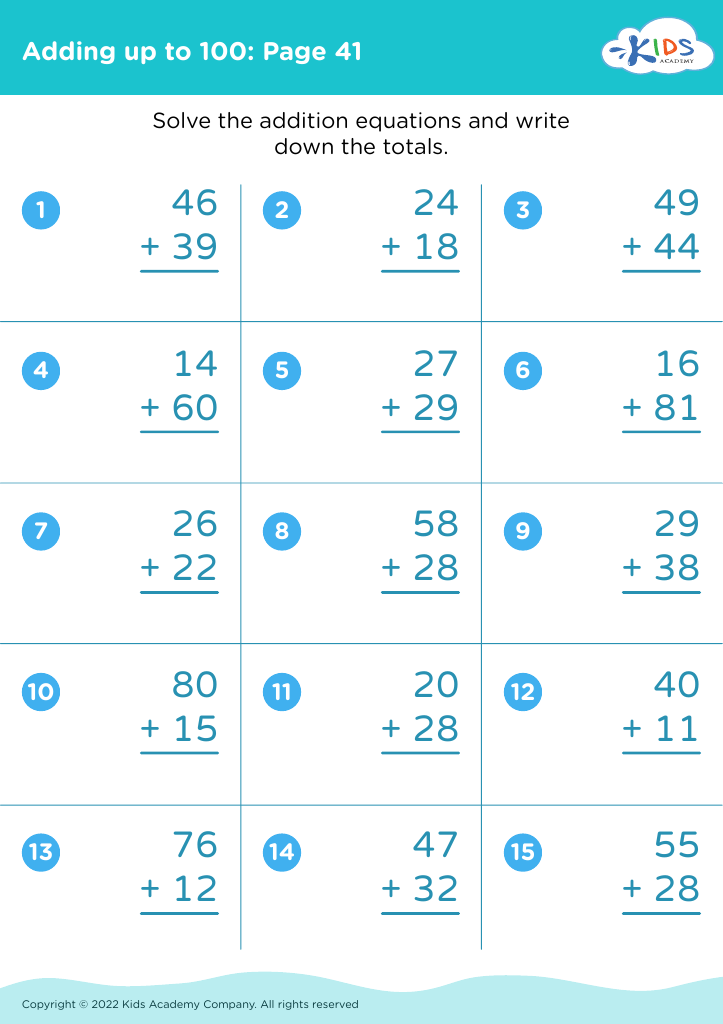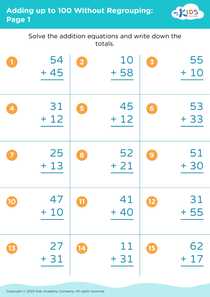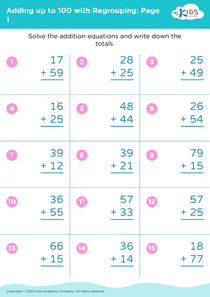Basic Math Skills Adding up to 100 Misc Worksheets for Ages 4-8
5 filtered results
-
From - To
Discover our "Basic Math Skills: Adding Up to 100 Miscellaneous Worksheets" designed for young learners aged 4-8! These engaging worksheets offer a variety of fun activities, helping children master fundamental addition concepts. With colorful visuals and age-appropriate challenges, kids will enjoy practicing their math skills while building confidence in their abilities. Each worksheet promotes critical thinking and problem-solving, ensuring a well-rounded approach to mathematics. Perfect for homeschoolers, educators, or parents looking to reinforce math skills at home! Explore our collection and give your child the tools they need for a strong mathematical foundation today!
Basic math skills, particularly the ability to add up to 100, are crucial for children aged 4-8 as they lay the foundation for future academic success and everyday life. During these formative years, kids develop cognitive abilities and critical thinking skills that will serve them throughout their education. Mastering basic addition fosters confidence in problem-solving and logical reasoning, enabling children to tackle more complex mathematical concepts later on.
Moreover, improving basic math skills enhances a child's ability to understand real-world situations, from counting items during shopping trips to managing allowances. These skills are essential for everyday tasks and decision-making, empowering children to navigate daily life effectively.
For parents and teachers, encouraging proficiency in math help sets a strong academic trajectory. Early mastery can lead to a love for learning and exploration in math-related subjects that offer enriching career paths in STEM fields. Furthermore, investing time in nurturing these basic skills can ignite interest and engagement in school, promoting positive relationships with education.
Ultimately, fostering basic math skills can lead to children's academic achievement, self-efficacy, and a lifelong appreciation for learning, establishing a critical stepping stone in their overall development.















